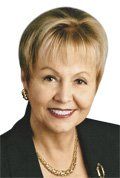- Acne
- Actinic Keratosis
- Aesthetics
- Alopecia
- Atopic Dermatitis
- Buy-and-Bill
- COVID-19
- Case-Based Roundtable
- Chronic Hand Eczema
- Chronic Spontaneous Urticaria
- Drug Watch
- Eczema
- General Dermatology
- Hidradenitis Suppurativa
- Melasma
- NP and PA
- Pediatric Dermatology
- Pigmentary Disorders
- Practice Management
- Precision Medicine and Biologics
- Prurigo Nodularis
- Psoriasis
- Psoriatic Arthritis
- Rare Disease
- Rosacea
- Skin Cancer
- Vitiligo
- Wound Care
Article
No disability insurance threatens future financial success
Author(s):
Financially, a disability is significantly more expensive than death. With a disability, income is reduced or eliminated and expenses increase. It makes sense to protect yourself and your family when the cost is low.

Kevin B. Perlberg, C.F.P Managing Partner, Daktori Financial FellowshipMany physicians and other successful business professionals overlook one of the most significant threats to their long-term financial success-a disability. The economic effects of inadequate disability insurance coverage can be more costly than a divorce, a lawsuit, or the premature death of the family’s primary earner.
READ: When physicians struggle with mental health
Responsible financial planning includes planning for the best possible future while protecting against the worst possible events. No one ever plans on becoming disabled-though nearly one-third of people age 25 or older will have a disability of three months or longer at least once in their lifetime.1
Within the professional context, a disability is an illness or injury that prevents the insured person from earning an income in his or her occupation. Disability insurance is frequently designed to

Susan Brousseau, C.L.U., Ch.F.C., C.F.P., Daktori Financial Fellowshipreplace a portion of the insured person’s income-usually between 45% and 65% of gross income, tax-free-though the policies can be supplemented.
The need for disability insurance
Should the family breadwinner die or become disabled, she or he will be unable to provide any income for the family. However, if she becomes disabled, she will still need to be fed, clothed, and cared for by medical professionals or family members. In many cases, the medical care alone can cost hundreds of dollars per day. Thus, with a disability, income is reduced or eliminated at the same time that expenses are increasing. In contrast, in the case of premature death, the deceased earner is no longer an expense to the family and with a well-planned estate, a life insurance policy pays out a lump sum to help the family navigate the financial challenges that ensue. A disability can be a devastating turn of events and can lead to problems with creditors, and even bankruptcy.
How serious are the threats of disability? Consider the following statistics:
- Among wage earners, 30% will experience a long-term disability (90 days or longer) before they reach age 65.2,3
- In December of 2010, there were more than 2.5 million disabled workers in their 20s, 30s, and 40s who were receiving Social Security Disability Insurance benefits.4
- Medical expenses contributed to 62% of all personal bankruptcies filed in the U.S. in 2007, a nearly 50% increase over results from a similar 2001 study.3,5
- Seven of 10 homeowners (69%) in foreclosure had suffered significant medical distress in the two years preceding foreclosure.6
If you are age 50 or younger, or if you are older than 50 and have pre-college age children, you should consider the appropriate disability insurance policy to be an absolute necessity.
NEXT: Employer coverage is often inadequate
Employer provided coverage is often inadequate
If you are an employee of a large company, your employer may provide group long-term disability coverage. The premiums are discounted from what you would pay for an individual policy. However, these policies are often incomplete or inadequate for the financial needs of well-compensated individuals and their families, so it is wise to consider purchasing a private, supplemental policy.
INTERESTING: Preventing employee theft, embazzlement
Also, because the benefit is paid by your employer during your disability, it will be taxable income. For most, this arrangement would result in the insured earning less than half of what he or she took home before the disability after taxes are paid. We advise that clients purchase a personally owned policy, paid for with after-tax dollars. By purchasing personally and after-tax, clients gain two things, portability and a tax-free benefit should a disability occur. Portability refers to the policy being able to be maintained when someone changes jobs, something that employer provided coverage typically fails to do. Also, when policies are paid for with after-tax dollars, the IRS allows benefits to be received tax free. A supplemental policy is an essential step in appropriate and strategic disability insurance planning.
NEXT: Disability insurance
Disability insurance
Own-occupation disability insurance includes the most comprehensive definition of total disability available. This type of policy will have a definition that says something like:
If you are unable to perform the material and substantial duties of your regular occupation, the insurance company will consider your occupation to be the occupation you are engaged in at the time you become disabled. They will pay the claim even if you are working in some other capacity.
ALSO READ: What you're missing without a mission statement
Own-occupation disability insurance is the only type of policy that does not penalize you for going back to work in a different occupation while you are considered disabled. Under this type of plan, if you cannot perform your occupation due to disability, you will be considered totally disabled, even if you choose to do something else.
Other types of disability insurance, such as specialty own-occupation disability insurance, have mistakenly been thought to pay a benefit and let you go back to work doing something other than practicing. However, a number of specialty own-occupation policies actually do not pay you any benefit at all if you go back to work in any capacity.
NEXT: Other important considerations
Other important considerations
It is essential to know whether your policy is non-cancel-able or guaranteed renewable. The difference between these two terms is very important. If a policy is non-cancel-able, you will pay a fixed premium throughout the contract term. Your premium will not go up for the term of the contract, nor can it be cancelled. If it is guaranteed renewable, this also means it cannot be cancelled, but your premiums can increase.
YOU MIGHT LIKE: Imagine paying less to the IRS and loving every minute
It is also important to determine the financial stability of the insurance company underwriting your policies. When considering the purchase of a policy or reviewing a current policy, check the financial soundness of your insurer. Work with your financial advisor to find high-quality, appropriate coverage with a reputable and respected insurer. The worst-case scenario is that your insurer goes out of business because their premiums were too low. In the disability insurance world, you generally get what you pay for.
The general information presented here may not be suitable for everyone and should not be construed as personalized legal or tax advice.
Content provided by Daktori Financial Fellowship:
Kevin B. Perlberg, CFP® professional, has been recognized numerous times by Medical Economics Magazine as one of “The Best Financial Advisors for Doctors.”
Susan Brousseau, CLU, ChFC, CFP®, delivers comprehensive financial planning with an emphasis on asset protection and is a nationally recognized speaker on the subject.
References:
www.cdc.gov/ncbddd/disabilityandhealth/pa.html
U.S. Social Security Administration, Fact Sheet February 7, 2013
Council for Disability Awareness, Disability Divide Consumer Disability Awareness Study, 2010
https://www.socialsecurity.gov/OACT/STATS/DIbenies.html
U.S. Social Security Administration, Fact Sheet February 7, 2013
Get Sick, Get Out: The Medical Causes of Home Mortgage Foreclosures, Health Matrix. 2008; 18[1]:65-104
Newsletter
Like what you’re reading? Subscribe to Dermatology Times for weekly updates on therapies, innovations, and real-world practice tips.
















